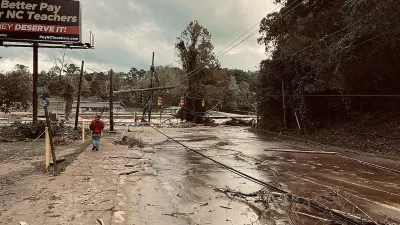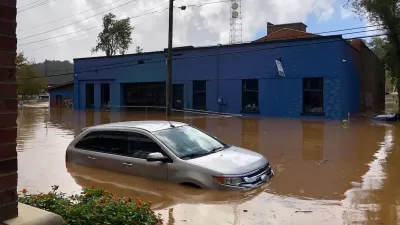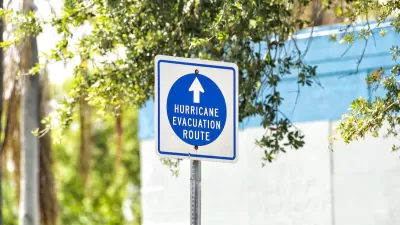Parts of North Carolina previously considered immune to the impact of hurricanes experienced historic flooding in the aftermath of the storm.

Even so-called “climate havens’ like Asheville, North Carolina are feeling the devastating impacts of Hurricane Helene, indicating that no region is safe from increasingly dangerous hurricanes and other climate-fueled disasters, write Chelsea Harvey and Thomas Frank in Scientific American.
Communities across Florida, Georgia, South Carolina, North Carolina, Tennessee and surrounding states were inundated by catastrophic floods. Millions of people lost power. And property damages are expected to amount to tens of billions of dollars.
Helene could, at the end of the day, be one of the most expensive weather disasters in U.S. history, with damages projected to be as much as $110 billion and over 60 deaths reported so far. Towns in the western part of the state previously considered isolated from hurricane damage received over 10 inches of rain, with some areas receiving as much as 30 inches.
Meanwhile, many of the homeowners in the region don’t have flood insurance, which is sold separately and often comes at a high cost. “Just 0.8 percent of the nearly 700,000 households in heavily flooded North Carolina counties have flood insurance through FEMA, agency records show.” Even in Florida, just 25 percent of households in flood risk areas have a policy.
FULL STORY: Hurricane Helene’s Devastation Shows No Region Is Safe from Climate-Fueled Disaster

Study: Maui’s Plan to Convert Vacation Rentals to Long-Term Housing Could Cause Nearly $1 Billion Economic Loss
The plan would reduce visitor accommodation by 25,% resulting in 1,900 jobs lost.

North Texas Transit Leaders Tout Benefits of TOD for Growing Region
At a summit focused on transit-oriented development, policymakers discussed how North Texas’ expanded light rail system can serve as a tool for economic growth.

Using Old Oil and Gas Wells for Green Energy Storage
Penn State researchers have found that repurposing abandoned oil and gas wells for geothermal-assisted compressed-air energy storage can boost efficiency, reduce environmental risks, and support clean energy and job transitions.

Private Donations Propel Early Restoration of Palisades Playground
Los Angeles has secured over $1.3 million in private funding to restore the Pacific Palisades playground months ahead of schedule, creating a modern, accessible space that supports community healing after recent wildfires.

From Blight to Benefit: Early Results From California’s Equitable Cleanup Program
The Equitable Community Revitalization Grant (ECRG) program is reshaping brownfield redevelopment by prioritizing projects in low-income and environmental justice communities, emphasizing equity, transparency, and community benefits.

Planting Relief: Tackling Las Vegas Heat One Tree at a Time
Nevada Plants, a Las Vegas-based nonprofit, is combating the city’s extreme urban heat by giving away trees to residents in underserved neighborhoods, promoting shade, sustainability, and community health.
Urban Design for Planners 1: Software Tools
This six-course series explores essential urban design concepts using open source software and equips planners with the tools they need to participate fully in the urban design process.
Planning for Universal Design
Learn the tools for implementing Universal Design in planning regulations.
Ascent Environmental
Borough of Carlisle
Institute for Housing and Urban Development Studies (IHS)
City of Grandview
Harvard GSD Executive Education
Toledo-Lucas County Plan Commissions
Salt Lake City
NYU Wagner Graduate School of Public Service





























